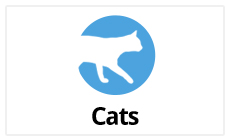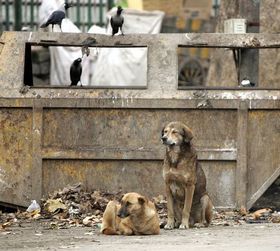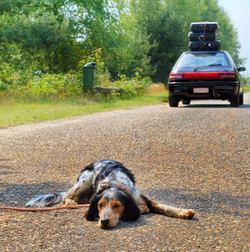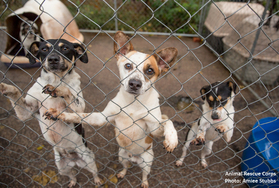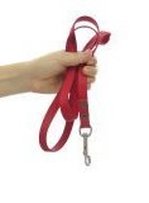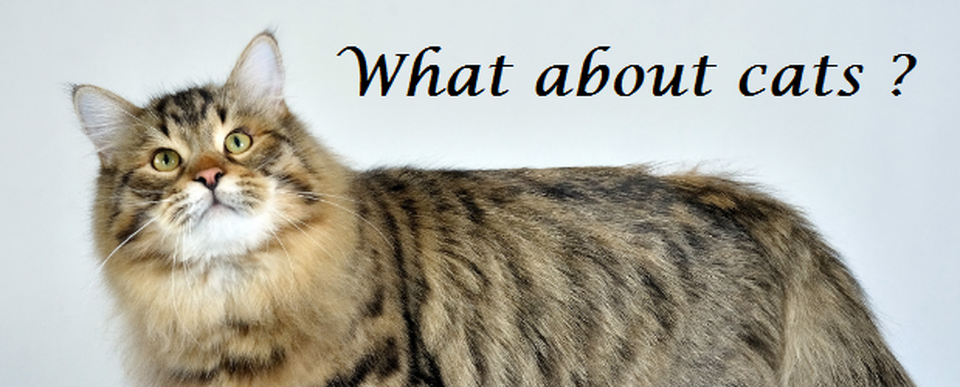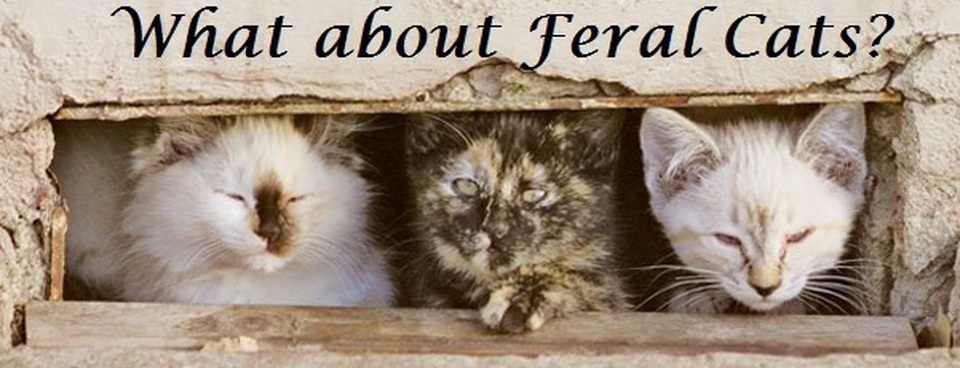Agatha's Lucky Paws Rescue and Sanctuary (ALPRAS) is a non profit rescue organization, with Foster Homes located in Central and Coastal Florida, dedicated to finding dogs and cats forever homes. We promote training, education, and awareness. This includes a broad spectrum of subjects such as spay/neuter, vaccinations, volunteer/fostering, pet health, animal rights, and more.
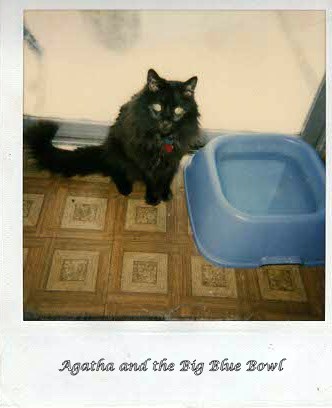
Our name comes from a beloved family member named Agatha.
Agatha was a strong, intelligent, beautiful, brave and sometimes bossy cat who not only helped define being a cat with 'nine lives', but also shows how long a true commitment to any animal can be. Born on June 1st, 1971, she was one of the very last line of Pure Black Russian Longhairs to make it out of the country before they were no longer allowed to be exported or leave Russia.
She survived being shot, jumping out of a car, stabbed, eating Penny Royal (very toxic to cats), and didn't let cancer take her for many years beyond what her estimated time left. If fact, Agatha live to be 35 years old! What's more is she was extremely tolerant of new animals when we were only just realizing that we wanted to rescue animals.
She knew exactly how to handle each animal individually, cat or dog, and was a fantastic pack leader! Its no wonder with just these short notes that we would absolutely name the rescue after her. This lucky girl who survived so much and taught other animals, and even people, to walk in her paw prints. Her dedication to us and the other animals in the house inspired us and her final days to wish kindness to any animal who did not ever get the chance to know that kind of love. That love found here, 'Where Everypawdy is Somebody' !
Agatha was a strong, intelligent, beautiful, brave and sometimes bossy cat who not only helped define being a cat with 'nine lives', but also shows how long a true commitment to any animal can be. Born on June 1st, 1971, she was one of the very last line of Pure Black Russian Longhairs to make it out of the country before they were no longer allowed to be exported or leave Russia.
She survived being shot, jumping out of a car, stabbed, eating Penny Royal (very toxic to cats), and didn't let cancer take her for many years beyond what her estimated time left. If fact, Agatha live to be 35 years old! What's more is she was extremely tolerant of new animals when we were only just realizing that we wanted to rescue animals.
She knew exactly how to handle each animal individually, cat or dog, and was a fantastic pack leader! Its no wonder with just these short notes that we would absolutely name the rescue after her. This lucky girl who survived so much and taught other animals, and even people, to walk in her paw prints. Her dedication to us and the other animals in the house inspired us and her final days to wish kindness to any animal who did not ever get the chance to know that kind of love. That love found here, 'Where Everypawdy is Somebody' !
Here at Agatha's Lucky Paws our main goal is to make sure a 'Forever Home' is a True Forever Home. We want to get it right the first time, every time. It's because of this dedication that we have an excellent track record for matching animals with appropriate homes and families. We accomplish this by really taking the time to understand each animal individually and getting to know their personality, behaviors, and needs before placing them up for adoption. We believe in full disclosure to prospective families. Each home and person has an individual personality and we want these to be a great match. This has been a huge part of our success that often sets us apart from other organizations and brings people back to adopt from us again. Our belief in these connections between people and animals is what makes Agatha's Lucky Paws a place Where Everypawdy is Somebody.
Agatha's Lucky Paws currently has two main programs.
- Rescue
- Bringing in strays.
- Pulling from overwhelmed rescues and shelters with high levels of animal dumping.
- Owner surrenders in Special Cases.
- Long term animals that need rehabilitation or extensive training.
- Hospice for very aged or terminally ill animals.
- Animals unadoptable to the general public for safety, liability, or disability.
ALPRAS has been in rescue for over 20 years. Though we have conjoined with larger rescues in the past and continue to work with other rescues, we still stand as an entity of our own with our values in place. We are a small rescue that has always looks towards growth that can only happen with people coming together like you! Adoption, Fostering, Volunteering, Donations, and Education all help us to grow stronger, save more animals, and even help keep owners from giving up on their own pets.
Agatha's Lucky Paws is first and foremost Rescue.
To look at our Adoptable Animals, click here.
To learn more about how our Rescue works, see below!
"We believe in one breed, and that breed is Dog."
ALPRAS accepts all breeds of dogs as long as there is a place for them to go with a Foster Home that can handle them. Some people can handle breeds of dogs that others can't. If we pull from an overwhelmed rescue or shelter, we will try to stay in the means of what our Foster Homes can handle. Strays of any breed or size that we find are a different story because they have no where to go and will stay at the Founder's residence until a Foster Home who can handle them is available or they are adopted.
No matter their 'pedigree', they all are welcome. Big or Small, gotta love 'em all!
No matter their 'pedigree', they all are welcome. Big or Small, gotta love 'em all!
ALPRAS takes cats in from Overwhelmed Shelters and Rescues, suitably friendly ranging stray cats, and in special instances owner surrenders.
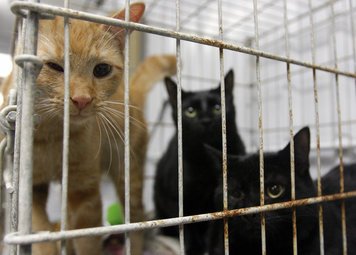
Shelters and Rescues can easily become overwhelmed with cats. Roughly 3.4 Million cats enter Municipal Shelters every year with at least 1.4 million being euthanized. This does not include the number of cats in the Humane Society, ASPCA, Friends of Strays, or similar large Shelter Organizations. This number also doesn't include various animal rescues around the country. Rescues often too easily take in far more cats than they can handle and if they experience low adoption rates it can make a rescue fail. Lastly, this also does not include personal individuals with large hearts but often fall into hoarding situations and wind up harming instead of helping the animals they love.
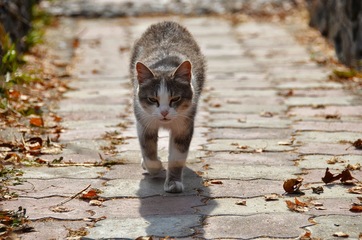
A Free Ranging or Stray Cat is a cat who has been socialized to people at some point in their life, and may have had a home. A stray cat can become feral and lose it's bond with humans due to lack of contact or bad experiences with humans. Sometimes a stray cat can also become a pet cat once again with patience and kindness. An easy way to explain it:
– “A stray cat is a domestic cat that has been abandoned or has ‘strayed’ from home and become lost. Stray [cats] were once pets and they can usually be successfully rescued and placed in homes.” – Stray Cat Handbook
– “A stray cat is a domestic cat that has been abandoned or has ‘strayed’ from home and become lost. Stray [cats] were once pets and they can usually be successfully rescued and placed in homes.” – Stray Cat Handbook
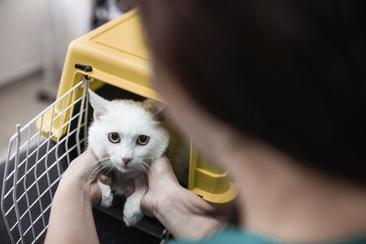
Owner Surrender is something we will bring into the rescue on special circumstances only at this time and must have a Foster Home to go to. Usually those circumstances of Owner Surrender are extreme, such as if a person has died, military personnel has been called in for duty or moving where they cannot take their cat, or someone has become homeless. Right now we are severely lacking in Foster Homes for cats making it difficult to bring in new cats. With growth we may be able to take on more Owner Surrenders, but our primary objective for cats is on strays or overcrowded shelters and rescues.

A Feral Cat is a cat who has either never had any contact with humans or has reverted to a feral state for survival and lack of human contact. Feral cats are generally fearful of people and survive on their own outdoors. A feral cat is not likely to ever become a lap cat or enjoy living indoors. Adult feral cats are not socialized to people, which means they cannot be adopted. As a result, they are likely to be killed if picked up by animal control or brought to shelters, so it is in their best interest to continue living outdoors. ALPRAS does have a Feral Cat Colony in Fort Pierce, Florida that we watch over. Donations or Sponsors are very much appreciated to ensure every Feral Cat is spayed, neutered, vaccinated, and fed. We hope to help more Feral Cats in the future.

Feral Kittens can come into the rescue with an available Foster Home as long as they are of the appropriate age. There is a window of time where Feral Kittens can be Rehabilitated into being a Domesticated Kitten/Cat. This window begins from the time you can get close to them. If the Feral Queen trusts a human, she may let them interact with her kittens. If that is the case, the sooner they can be handled the better. A Kitten of 6 months or older is generally not one that can be rehabilitated as they are Sub Adults at this time. Many kittens between 6-8 months are either ready to get pregnant or already are. For them, Trap-Neuter-Release programs are the best alternative alongside other feral adult cats in the area.

Every state, county, city, and even small towns usually have laws regarding animals. These restrictions can be either negative or positive in favor of animals, pet owners, rescues, and shelters. In the area where most of our Foster Homes reside there is a pet limit. Whereas this in many ways protects people and animals from hoarding situations, it also can hinder those working in rescue. No matter how responsible a rescue who uses foster homes is, the law is the law. Most foster homes have pets of their own and can only take in one foster animal at a time. Staying within the bounds of the law is important to be able to keep doing what we can for the animals knowing they will not be taken away because we ignored it.

Overcrowding can cause a variety of problems that cause both animals and humans to suffer. Its very hard to ignore the many pleas for help from all sides. We want to save as many as we can, but it must be done responsibly. When you have to many animals it can impact their health much like one person getting a cold can sweep a household or workplace into also having one. This is especially prevalent in houses with too many cats. Cats are very sensitive to Upper Respiratory Infections and since they often play, sleep, and clean other cats it makes them more susceptible. Additionally, animals can gain all manner of behavioral problems when overcrowded and humans also can have conflict with family members either in or out of the home.
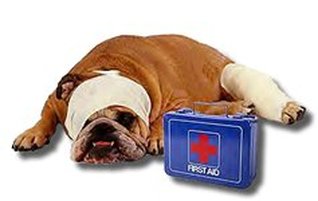
Veterinary Costs can skyrocket when helping animals, especially if the rescue does not have any discounts with the vet they work with. An animal who comes into a rescue who is of good health and not yet altered can cost $300-500 easily before they go to a new home. Some animals are not so lucky. From general injuries to major surgery, it has to be paid for and there are not always enough donations available. This makes bringing in tough cases hard for a small rescue, but we are doing an animal no favor by bringing them in just to suffer waiting for help.
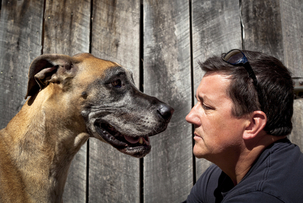
Compatibility/Personality Conflicts is an issue that should be addressed. Not every breed of dog or cat can work in a Foster Home. Those boundaries should be considered and respected. Example: A Disabled person may want to foster but has limited activity. Fostering a Boxer would be terrible idea as Boxers have extraordinary amounts of energy. This is not a good fit for the person or dog and would cause behavioral issues and personal conflicts. This same person may not mind fostering old dogs or disabled dogs because they have the extra time to care for them. A better match, a better relationship, a better chance for success in a future forever home.

Leaving Space can be a lifesaver. We like to stay a few animals below what we can take in. We never know what we may find or what emergency may happen or if for some reason an animal doesn't work out with a foster family or (hopefully never) an adoptive family. Strays are always an unexpected addition since we never know when they will show up! Saving space also means that if an animal turns into a Sanctuary animal, we still have room for a foster because once an animal becomes Sanctuary status, we lose that spot potentially for 1-20 years depending on their lifespan.

We want to succeed and grow! When a rescue or shelter experiences one or all of the negative dangers of rescue everyone suffers; People, Animals, other Rescues, Neighborhoods, Creditors, and even your Taxes. Someone has to clean up the mess left behind from a failed Rescue/Shelter/Sanctuary.
Did you know most rescues fail within 2 years? Over extending themselves in any way can cause emotional duress from what we see, monetary crisis from vet bills and general care, run ins with law enforcement and, if there is a facility (shelter location), problems with staff, property, repairs, disease, or overall management. We do not want this to happen to us or the animals. We want to grow, succeed, and help as many as we can! Having rules is a part of everything a smart organization does and we want to do our best for the lives in our hands.
Did you know most rescues fail within 2 years? Over extending themselves in any way can cause emotional duress from what we see, monetary crisis from vet bills and general care, run ins with law enforcement and, if there is a facility (shelter location), problems with staff, property, repairs, disease, or overall management. We do not want this to happen to us or the animals. We want to grow, succeed, and help as many as we can! Having rules is a part of everything a smart organization does and we want to do our best for the lives in our hands.
Frequently Asked Questions
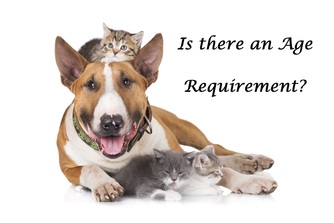
There is no age requirement to become an ALPRAS Sanctuary Resident. Any animal at any age could have complications seen before or discovered after they have come to the Rescue. We are very mindful about what animals we bring into the rescue to make sure we do not over extend ourselves. In fact, we do usually keep at least one very old dog in the Sanctuary rescued from 'death row' from a shelter. However, sometimes (though rarely) a very young dog or puppy has become a resident due to circumstances beyond anyone's control.
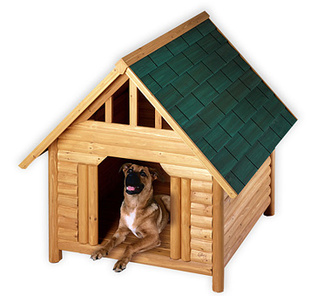
Do you have a Facility or Shelter? Not at this time.
We are a small group of Foster Homes, this limits us on how many animals we take in. One day in the future we may be able to create a place for more Sanctuary animals, but right now that is not possible. Because of this we do not knowingly take in a dog or cat that we know has no hope of adoption by the public aside from having one old dog who has been dumped at a shelter at a geriatric age at a time at the Founder's personal residence. If a dedicated Foster Home is willing, they can opt to have one of their Foster Animal's openings be dedicated to housing a Sanctuary Aniamal. These special Foster Homes and Animals are often called 'Furever Fosters' by the rescue community.
We are a small group of Foster Homes, this limits us on how many animals we take in. One day in the future we may be able to create a place for more Sanctuary animals, but right now that is not possible. Because of this we do not knowingly take in a dog or cat that we know has no hope of adoption by the public aside from having one old dog who has been dumped at a shelter at a geriatric age at a time at the Founder's personal residence. If a dedicated Foster Home is willing, they can opt to have one of their Foster Animal's openings be dedicated to housing a Sanctuary Aniamal. These special Foster Homes and Animals are often called 'Furever Fosters' by the rescue community.
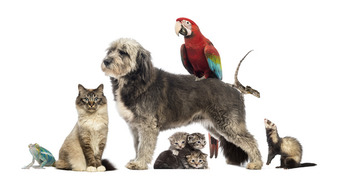
Are there any types animals you won't allow in your sanctuary? Yes & No
While we love all types of animals, we are not equipped to take in all types. Some animals require special care or knowledge. If we have a Foster Home or Dedicated Sanctuary Home (or Furever Foster) that knows a lot about or specializes in a type of animal we will allow Sanctuary then. Certain species, such as Birds and Reptiles, can live a very long time, far beyond average pet lifespans.

Are there any Breeds of Dogs that you won't take in? No.
We are a non breed biased rescue.
"We believe in one breed, and that breed is Dog."
Any dog, cat, or other animal that has come into the rescue who needs Sanctuary Status will receive it. Keeping in mind that we want every single animal to find a forever home, sometimes it just isn't in the cards for them. This just means it's in ours to look over them as animal guardians.
Big or Small, gotta love 'em all!

Can I Adopt a Sanctuary Animal? Sometimes.
Some animals will have dual status as both Adoptable and Sanctuary.
This happens when an animal is difficult adopt due to:
- Hospice or being very old
- Having complicated disabilities
- Require tight restrictions on the Adopter
ALPRAS is a full disclosure rescue. We want you to know everything and will never try to hide their issues. It's a part of our code to make the right match the first time every time. This can only be accomplished with honesty and making sure we set up both the animal or adopter up for success. We won't adopt out an animal unless we are sure both animal and adopter can cope with all issues.
Some animals will have dual status as both Adoptable and Sanctuary.
This happens when an animal is difficult adopt due to:
- Hospice or being very old
- Having complicated disabilities
- Require tight restrictions on the Adopter
ALPRAS is a full disclosure rescue. We want you to know everything and will never try to hide their issues. It's a part of our code to make the right match the first time every time. This can only be accomplished with honesty and making sure we set up both the animal or adopter up for success. We won't adopt out an animal unless we are sure both animal and adopter can cope with all issues.
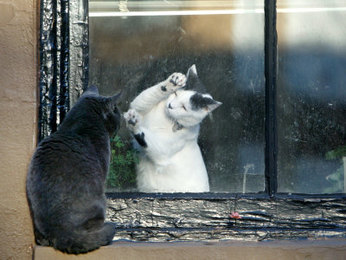
Do you keep Sanctuary and Adoptable Animals separate? Rarely.
We strive to make every animal have as much quality of life as possible and that means having them be a part of the household they reside in. If a Sanctuary Animal is separated from others in any Foster Home it is usually because:
- They have health concerns that either put them or other animals at risk.
- There are Safety concerns to others animals, such as aggression.
- They are healing from a major surgery or illness and need to be kept calm.
A prime example of needing to keep animals separate is a cat who has FeLV. Since it is highly contagious, they could not mingle freely with other cats.
We strive to make every animal have as much quality of life as possible and that means having them be a part of the household they reside in. If a Sanctuary Animal is separated from others in any Foster Home it is usually because:
- They have health concerns that either put them or other animals at risk.
- There are Safety concerns to others animals, such as aggression.
- They are healing from a major surgery or illness and need to be kept calm.
A prime example of needing to keep animals separate is a cat who has FeLV. Since it is highly contagious, they could not mingle freely with other cats.
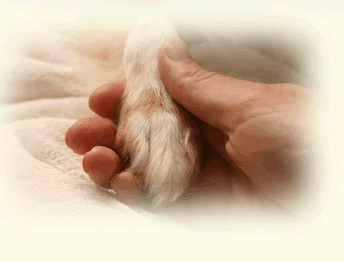
Do you Euthanize Sanctuary Animals?
We are No-Kill. What this means:
"No-kill" means that animals are not destroyed except in cases of terminal and painful illness, or when compassion demands euthanasia because there is no reasonable alternative.
Every ALPRAS animal is a part of our family and this means we will do everything within our means to help an animal live a happy, healthy, quality life.
Only extreme cases can take the matter out of our hands.
We are No-Kill. What this means:
"No-kill" means that animals are not destroyed except in cases of terminal and painful illness, or when compassion demands euthanasia because there is no reasonable alternative.
Every ALPRAS animal is a part of our family and this means we will do everything within our means to help an animal live a happy, healthy, quality life.
Only extreme cases can take the matter out of our hands.
If you have any questions about us, the animals in the rescue,
adoption, fostering or how to help:
Please contact us at [email protected]
adoption, fostering or how to help:
Please contact us at [email protected]
Follow us on Facebook at Agatha's Lucky Paws Rescue and Sanctuary or on Twitter @AgathasLuckyPaw








